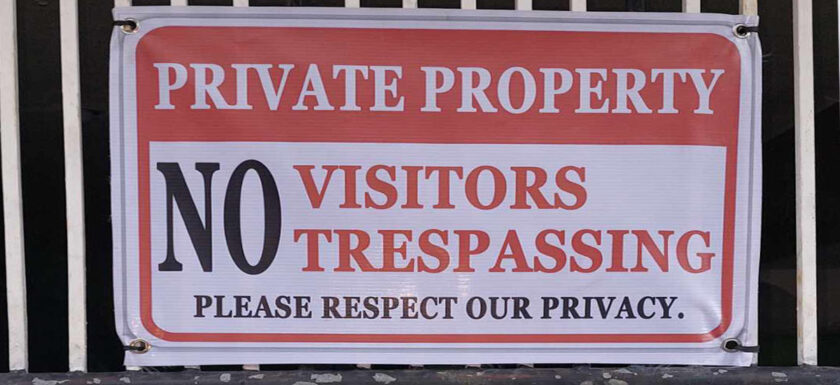Living in a boarding house near SWU PHINMA can offer convenience and a sense of community for students. However, it’s essential for residents to understand the rules and policies set by the boarding house management. One such policy that may affect students is the restriction on visitors. In this article, we delve into the reasons behind the “No Visitors Allowed” policy in boarding houses near SWU PHINMA and explore its implications for residents.
Understanding the Policy:
The “No Visitors Allowed” policy in boarding houses near SWU PHINMA is implemented to ensure the safety, security, and well-being of all residents. This policy prohibits non-residents from entering the premises of the boarding house, including individual rooms and common areas, without prior authorization from the management.
While the specific rules may vary from one boarding house to another, the overarching goal of this policy is to maintain a secure and conducive living environment for residents. By limiting outside visitors, boarding house management aims to prevent unauthorized individuals from entering the premises and minimize potential risks such as theft, vandalism, disturbances, and other safety concerns.
Reasons Behind the Policy:
There are several reasons why boarding houses near SWU PHINMA may implement a “No Visitors Allowed” policy:
Safety and Security: Allowing unrestricted access to visitors increases the risk of security breaches and compromises the safety of residents. By enforcing strict visitor regulations, boarding house management can better control who enters the premises and ensure that only authorized individuals are allowed on-site.
Privacy and Comfort: Residents rely on boarding houses as a place to study, rest, and unwind after a long day of classes. The presence of unfamiliar visitors can disrupt the peaceful atmosphere of the boarding house and infringe upon the privacy and comfort of residents. Implementing a no-visitors policy helps maintain a respectful and harmonious living environment for all.
Community Health and Hygiene: In light of public health concerns such as the spread of infectious diseases, boarding houses may restrict visitors to minimize the risk of transmission among residents. Limiting outside contact reduces the likelihood of exposure to illnesses and helps safeguard the health and well-being of residents, especially during times of heightened health precautions.
Compliance with Regulations: Some boarding houses near SWU PHINMA may enforce a no-visitors policy to comply with local regulations or zoning laws governing residential properties. By adhering to legal requirements, boarding house management can avoid potential fines, penalties, or legal disputes that may arise from unauthorized visitor activity.
Implications for Residents:
While the “No Visitors Allowed” policy serves to uphold safety and security standards in boarding house near SWU PHINMA, it may also have implications for residents:
Social Interaction: For students who value socializing and hosting gatherings, the restriction on visitors may limit opportunities for interaction with friends, classmates, or family members. Residents may need to find alternative venues for social gatherings or make arrangements to meet outside the boarding house premises.
Family and Friends: The no-visitors policy may pose challenges for residents who wish to have family members or close friends visit them at the boarding house. Students may need to communicate the policy to their loved ones and arrange meetups at external locations, such as cafes, parks, or recreational areas, instead.
Adjustment Period: Adapting to the no-visitors policy may require an adjustment period for residents who are accustomed to having guests over regularly. However, with clear communication and understanding of the rationale behind the policy, residents can adapt to the guidelines and prioritize the safety and well-being of their fellow occupants.
Alternative Arrangements: Despite the restrictions on visitors, residents can explore alternative ways to stay connected with their social circles and maintain relationships outside the boarding house. Utilizing digital communication tools, organizing off-site gatherings, or participating in college events can help residents stay engaged and connected with their peers.
Conclusion:
In conclusion, the “No Visitors Allowed” policy in boarding houses near SWU PHINMA serves as a protective measure to ensure the safety, security, and well-being of residents. While the policy may present challenges for social interaction and visitor arrangements, it ultimately contributes to fostering a secure and respectful living environment for all occupants. By understanding the reasons behind the policy and adhering to the guidelines set by boarding house management, residents can contribute to a positive and harmonious community experience during their time at SWU PHINMA.

